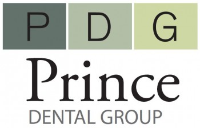For many people, brushing and flossing are only standard parts of their daily morning routines. However, most people underestimate the importance of this ‘normal’ everyday practice while many other people end up doing it the wrong way. You may be aware by now that the main reason why you should brush and floss every day is that it helps to prevent various kinds of dental problems and gum disease. Regular brushing helps to get rid of plaque, which is the primary cause of gum disease and tooth decay. Flossing also helps prevent the buildup or formation of plaque.


Flossing is one of the most effective ways of preventing the buildup of plaque and its adverse effects – although it should be combined with regular brushing. A string of dental floss is an effective tool that is not only very easy to use but also offers a formidable defense against periodontal disease. The leading causes of periodontal disease are bacteria and plaque buildup.
Therefore, your daily oral routine should include brushing your teeth thoroughly, at least twice a day, for about two minutes. It should also include incorporating the habit of flossing into your oral routine. Although brushing does a lot of the work, dental floss is designed to reach those corners in your teeth where your brush cannot go. Such areas include the tiny gaps between your teeth, which offer lodging spots for sugars, food debris, and acids from sugary drinks. Although flossing may only take a few minutes, its benefits may last you a lifetime.
Brushing your teeth at least twice a day comes with a lot of benefits for your dental health. For starters, it can help prevent tooth decay that leads to dental cavities or dental caries, which is the creation of holes on the tooth. This condition can lead to tooth loss if not treated. Secondly, regularly brushing your teeth will also prevent bad breath, which can affect your social life as well as your self-esteem. Furthermore, refusing to brush for some days will expose your gum to diseases. Brushing your teeth often helps to prevent this. It also ensures that you do not expose your teeth to plaque, which is the leading cause of gum disease and tooth decay.
However, it is one thing to brush regularly, and quite another thing applying the proper brushing techniques and following some basic rules such as the following.
Always opt for toothbrushes with soft bristles, as they are more gentle on the gum. Plus, softer bristles can reach between the spaces in your teeth with less difficulty.
For example, only purchase ADA-accepted toothpaste types, as they contain the right amount of fluoride for everyday use.

Our family friendly dental office is designed to make your dental experience comfortable, relaxed and enjoyable for the whole family.
Monday: 8am – 5pm
Tuesday: 7am – 7pm
Wednesday: 7am – 7pm
Thursday: 7am – 5pm
Friday: 8am – 1pm
Saturday: Closed
Sunday: Closed